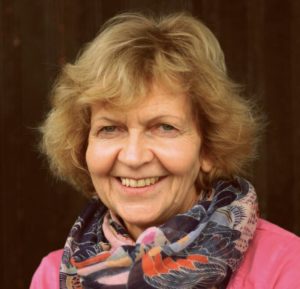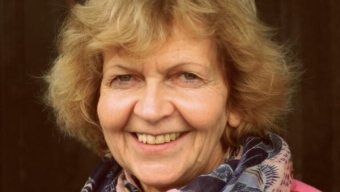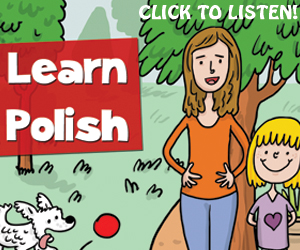“When my children began at the school in 1986, there were only 50 children there. Now there are around 250. Children from a Polish background go to various English schools and they do great. They have Polish as well as British friends, and they integrate well with British society”, says Teresa Hough, Head of the Polish Saturday School in Leeds in an interview with Maria Helena Żukowska.
When did you first come to the UK and what brought you here?
“I first came to the UK in 1978 as an English Studies student. This is when I met my future husband, who’s English. After I returned to Poland, I finished my studies and I got married in 1979. After I received my passport, for which I had to wait six months, I came back to the UK – this time permanently.”
 What were things like for you at the beginning?
What were things like for you at the beginning?
“Very interesting, although a little lonely. Far from the family, in a small town in Hampshire, in the south of England, with no Polish people around. But I met lots of very friendly people, from whom I learnt about the British customs and way of life. I already knew the English language, as I studied it in Poland, at university.”
What is your life in the UK like today?
“After 37 years of living in the UK, I feel completely at home here. I’ve worked at a variety of schools and colleges – from primary to further education, including 20 years at the Thomas Danby College in Leeds, working with international students (teaching English as a foreign language). I’ve always enjoyed my work, and have met many people; not just from the UK, but from lots of different countries. Apart from this, I’ve been working at the Polish Saturday School in Leeds for 30 years now. I’m also often at the Polish Community Centre on Sundays, when we run a coffee and cake club and collect money for our Polish School in this way.”
You dedicate plenty of time and heart to the Polish School mission. Why do you do that?
“Yes, the Polish School is an important place for me. I began working there when my children were young. They used to go every Saturday, starting in the preschool group, up until passing their A-levels in Polish language. I believe it’s important that children of Polish heritage know the language of their parents and grandparents, their country and its customs.”
How do you envisage the future of Poles in the UK? Looking at the bilingual (and even some trilingual!) students at Polish School, do you think Polish people will become fully integrated into British society?
“From my observation, more Poles continue to come to the UK. Student numbers at the Polish School seem to prove this. When my children began at the school in 1986, there were only 50 children there. Now there are around 250. Children from a Polish background go to various English schools and they do great. They have Polish as well as British friends, and they integrate well with British society.”
To what extent do you feel British? To what extent do you feel Polish?
“I do feel British to an extent, because I’ve lived in the UK now for longer than I’ve lived in Poland. My children were also born here. And, although they like Poland very much (my son actually worked in Krakow, Poland, for some time), the UK is their country. I also feel that I’m Polish. My parents, my sister and the whole family live in Poland. Therefore, we go to Poland for every holiday, so that we can spend some time together, at least those few weeks each year. We also maintain and celebrate Polish traditions in our household during Christmas and Easter.”
What’s your contribution to the UK?
“I worked in the British education sector for over 30 years, which included time helping children with learning difficulties, teaching English as a foreign language and even teaching the Polish language to British people. This was at the University of Bradford and on evening college courses in Leeds. My former British students work in Poland now. Some of them are employees of the Poundstretcher chain – a company which launched operations in Poland recently. I was also an interpreter, working for the police and in hospitals, often in a voluntary capacity. Finally, I always participated actively in the community at my children’s English schools.”
Any funny stories you would like to share?
“Although I had a degree in English, there were still a lot of words and expressions I didn’t know when I first came here. When I worked in a bar, customers would ask me for “a whisky on the rock” or “a rock in a glass”. Or how about “a chip butty” – what on earth is a chip butty?! I also once got lost while travelling on a train, which “split”. As I didn’t understand what “split” meant and sat in the wrong part of the train, I went in the opposite direction to my destination and got completely lost. I was helped by a very kind conductor, who put me on the right train and let me use the same ticket to get back to my station.”
***
 This interview was carried out as part of the ‘Poles in the UK’ project, and was first published in the book Poles in the UK: A Story of Friendship and Cooperation (by Brin Best & Maria Helena Żukowska, 2016).
This interview was carried out as part of the ‘Poles in the UK’ project, and was first published in the book Poles in the UK: A Story of Friendship and Cooperation (by Brin Best & Maria Helena Żukowska, 2016).
For more details see the Poles in the UK Facebook page and www.polesintheuk.net.












